Veterans bring the past to life with VE Mail letters
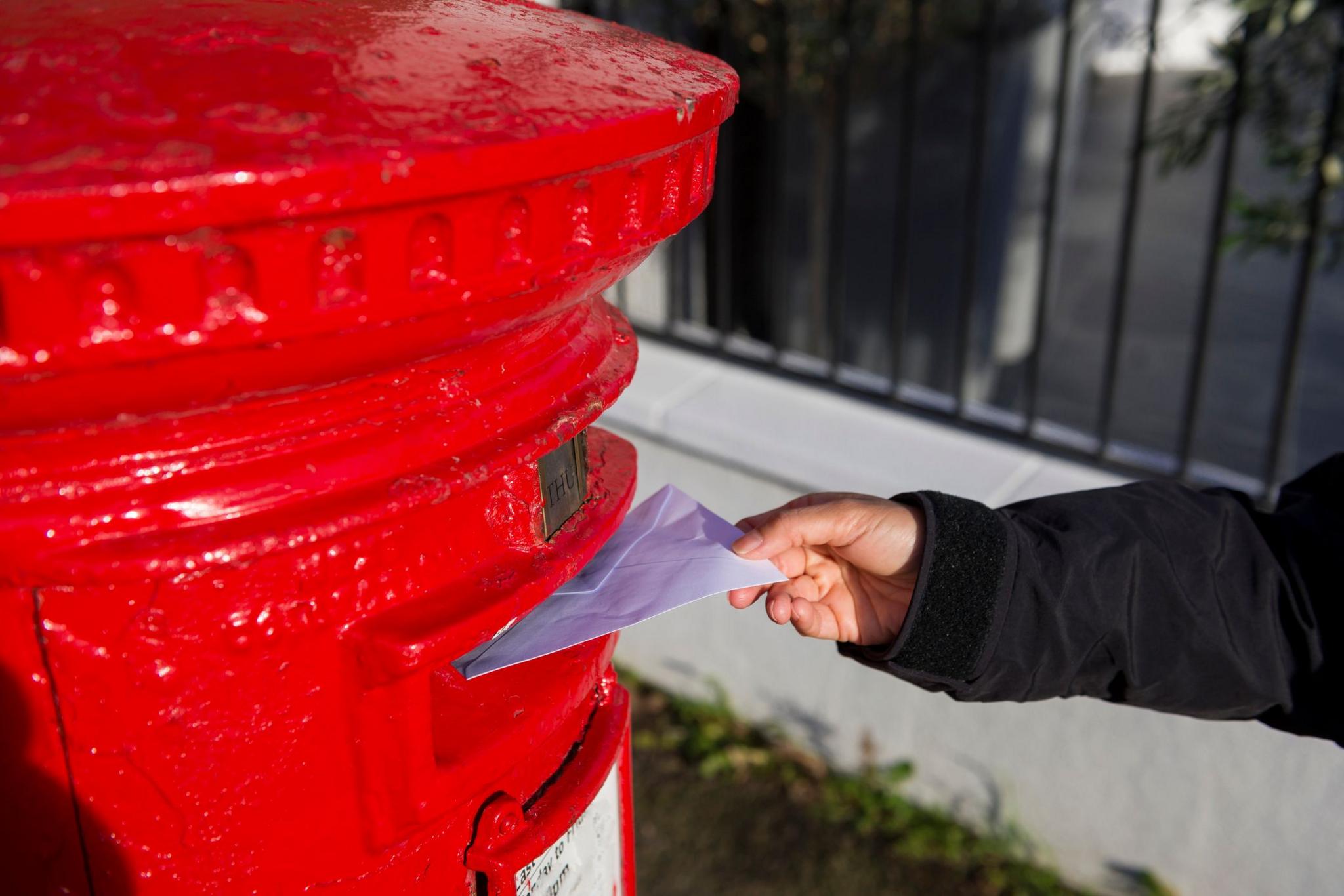
- Published
Imagine receiving a letter that could transport you back in time.
Over 50,000 children across the UK have signed up to a letter writing scheme that connects them with veterans from the World War Two.
Called VE Mail, it's an opportunity for children to hear first-hand about the past, with veterans sharing their own stories of the war, organised by charity The Together Coalition.
The children involved receive a personal letter from a veteran, and have the chance to send a reply.
More like this...
How is VE Day being marked around the UK?
- Published25 April
King Charles and Queen Camilla to host VE Day tea party
- Published25 April
'They closed their eyes and it was like they were transported back to June 1944'
- Published3 June 2024
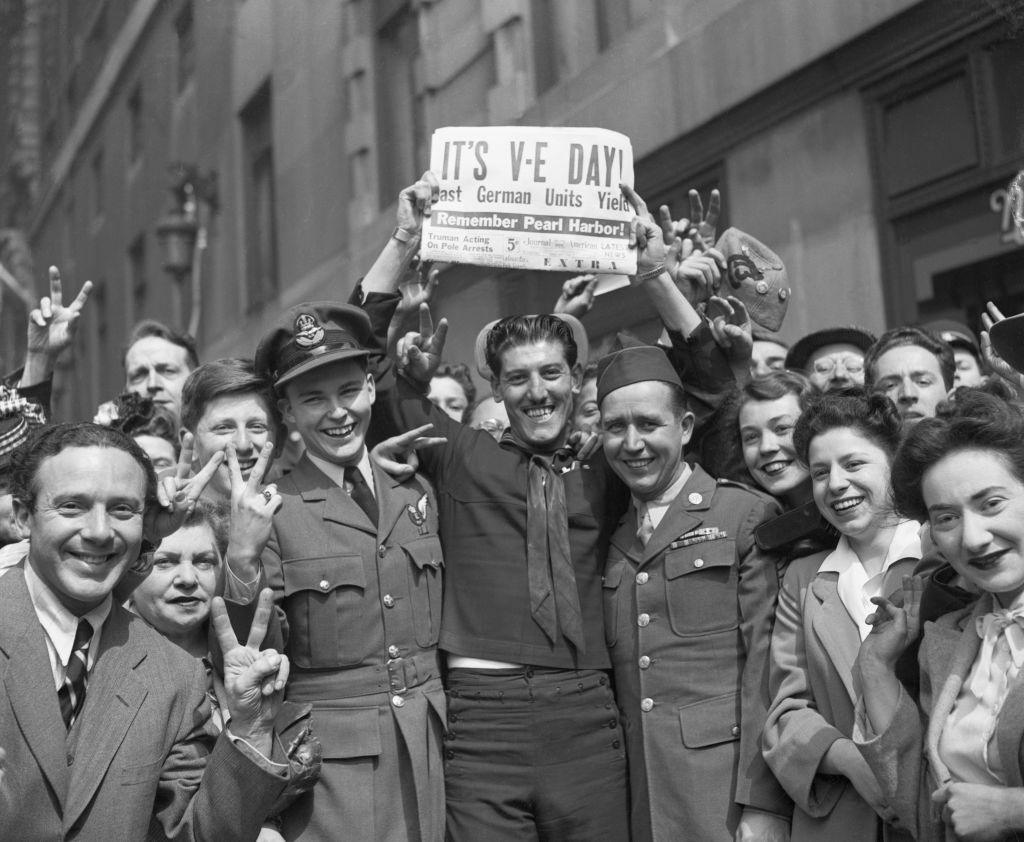
VE Day - or Victory in Europe Day - marks the day near the end of World War Two (WW2) when fighting in Europe came to an end.
It's celebrated on 8 May, the date in 1945 when Prime Minister Winston Churchill announced that war in Europe had come to an end, following Germany's surrender.
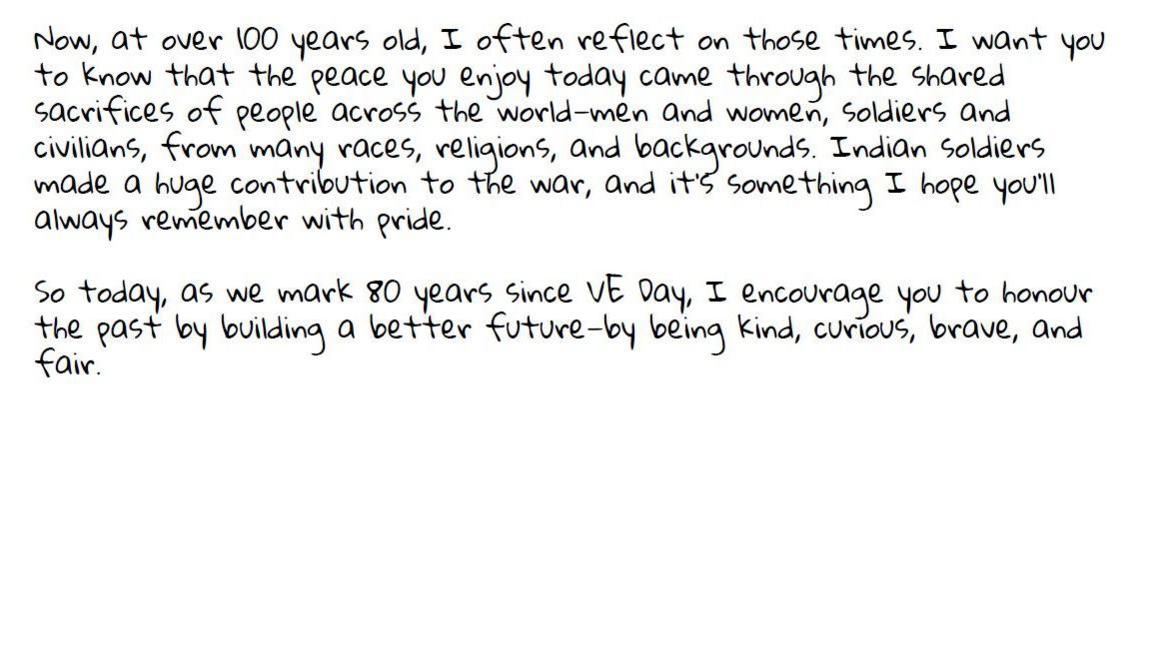
A extract from a letter written by 103 year old veteran, Rajinder
One letter is shared by a veteran, Rajinder Singh Dhatt, who was born in India and joined the British Indian Army at the age of 19.
Now 103, in it he reflects on his time as a soldier.
"I witnessed fierce fighting and brave acts by soldiers from many nations," he says.
He also remembers his feelings when the war ended.
"When peace finally came, we felt both relief and sadness - for the friends we had lost, and the years we could never get back."
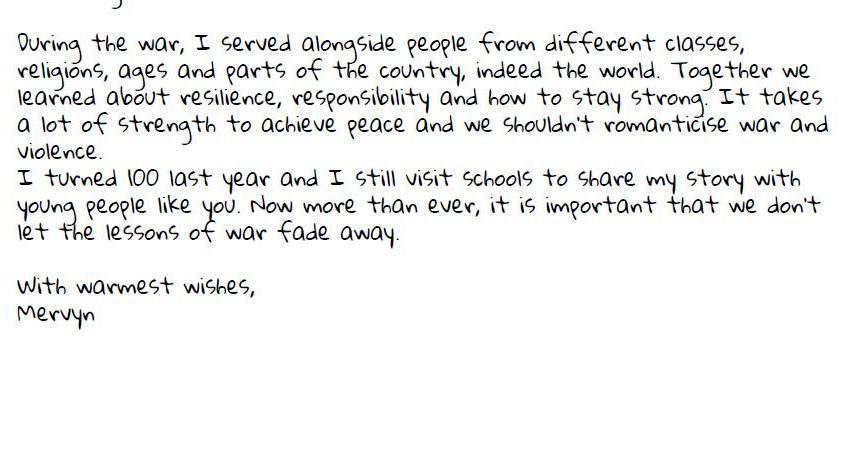
Another letter from 100 year old Mervyn Kersh tells of what he learnt through his time as a soldier.
He shares his experience of being evacuated from London as a 14 year old boy, when war first broke out, and of being part of the D-Day invasion of Normandy.
He also talks about the hardship of war and his life as a soldier, sleeping in makeshift shelters and cobbling together meals.
"I arrived back in London earlier than expected. I rang the doorbell and my mother answered. She looked at me and said, 'Can I help you?' - she didn't recognise me after my time at war."
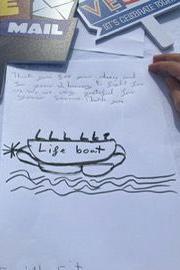
101 year old Jean Rees served as a Wren during the Second World War.
Wren was the nickname given to those enrolled in the Women's Royal Naval Service - a branch of the navy that recruited women to take on important roles to support the war.
In her letter she describes the training that Wrens undertook.
"Firefighting, gunnery, first aid, and marching in perfect unison. Discipline was drummed into us," she says.
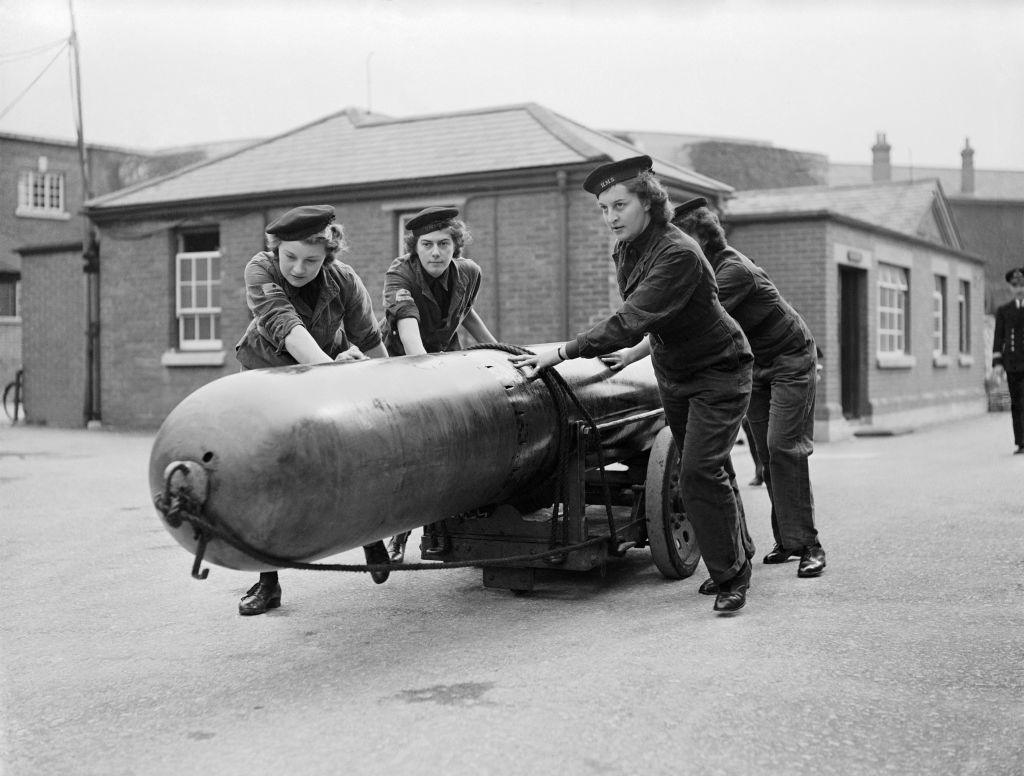
Jean also talks about the friendships and camaraderie she found with the other Wrens.
"Being away from home was new to me. I lived in a cabin with other Wrens - no privacy, no room of my own. But we quickly became close. Friends for life. They called me 'Sug', short for sugar, because they thought I was sweet. The trust shared between five young women - strangers who became lifelong friends - was something I'll never forget."
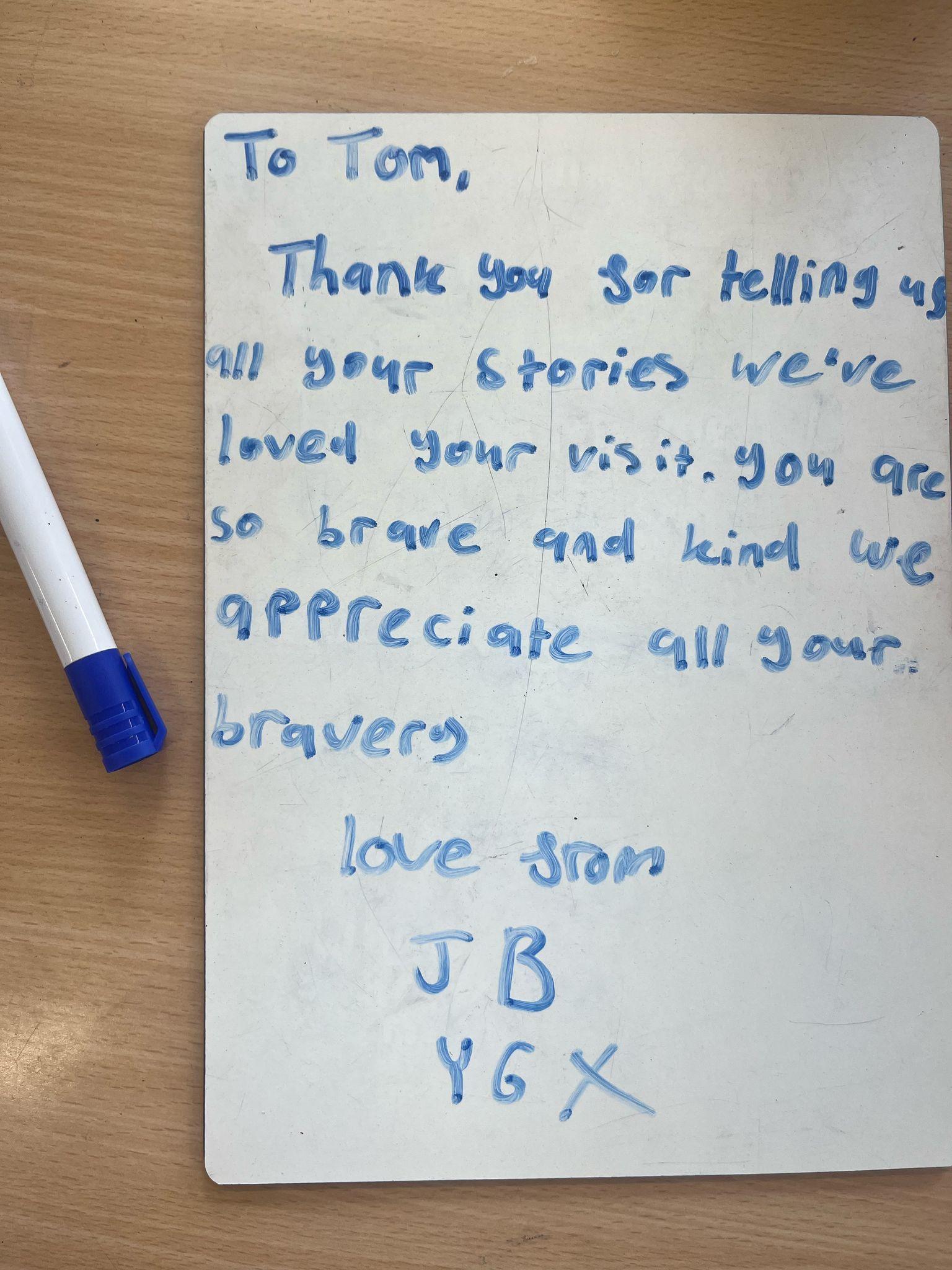
There are now very few surviving veterans from World War Two, and organisers hope the letter exchange will help children to better understand what life was like during the war.
They hope the letters will also serve as a lasting legacy of the veterans' experiences.
The letters written by the veterans, and the children's replies, will be saved in a national archive.
